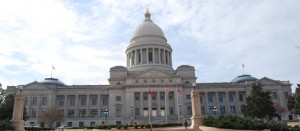 By Steve Brawner
By Steve Brawner
© 2016 by Steve Brawner Communications, Inc.
Watchfulness is a cornerstone of a free society. Cynicism leads to the decay of it. There’s a huge difference between them, but not much distance.
What’s the difference? Watchfulness means being aware that people are sinful and selfish, that we seek our own glory and power and riches, and that we abuse and misuse other people and institutions. But it also takes into account that people make choices, and often the right ones. So it does the hard thing: It gathers facts about each individual situation and then makes a determination of what is happening, knowing that it’s probably neither all bad nor all good.
Cynicism sees bad qualities in others but often doesn’t see it in the mirror. Instead of gathering many facts to form a belief, it takes the lazy shortcut of forcing a few facts into a predetermined belief. It substitutes mockery for joy, and it builds its own worth on the shaky foundation of other people’s flaws.
Cynicism leads to inaction. Because cynicism says that nothing can be fixed, then there’s no reason to try. That’s why everyone who ever did anything great was optimistic about something. Worse, cynicism can lead to scorn, and scorn can lead to blaming, and blaming can lead to dehumanizing, and dehumanizing can lead to a lot of terrible things.
The challenge with watchfulness, on the other hand, is that it requires a delicate and difficult balance. Tip too far in one direction, and it falls into naivete. Tip too far in the other direction, and it leads to cynicism. There’s a huge difference between the two, but not much distance.
So let’s try to look, not on the bright side, but on the true side. It is true that the presidential race includes four candidates who for many people elicit strong negative emotions: Donald Trump, Sen. Ted Cruz, Secretary Hillary Clinton, and Sen. Bernie Sanders. (I wish Gov. John Kasich would elicit some negative emotions, too, but alas.) It would be easy to watch what has happened in this campaign and become cynical. Very easy.
But remember that watchfulness doesn’t take that easy route. It looks at the whole picture. So while it can be dismayed that the system isn’t working as well it should, it doesn’t ignore that the system is working much better than it could. For all the system’s flaws, we can be virtually certain there will be an orderly transfer of power come next January, and that’s a pretty uncommon thing in world history. The next president of the United States, far from seizing power with a sword, is traversing the country begging little ole’ you and me to vote for him or her and, to some degree, listening to our concerns. Yes, the watchful person says, money has far too much influence. On the other hand, Jeb Bush had a lot of it.
Closer to home, legislators during the next month will be engaged in a fierce debate about extending the private option, the program that uses federal dollars through Obamacare to purchase private health insurance for Arkansans with incomes up to 138 percent of the federal poverty line. It serves about a quarter of a million Arkansans. It expires at the end of this year, but Gov. Asa Hutchinson is trying to save it by making some changes and calling it “Arkansas Works.”
It’s a very divisive issue. Democrats unanimously support it; Republicans are split. Cynicism from one direction says it’s all part of a movement to nationalize the health care system. Cynicism from the other direction says some people don’t care enough about the poor or simply oppose whatever President Obama supports. There are elements of truth to all those charges, and they should not be ignored.
But the rest of the truth is that a legitimate debate is occurring about the role of government in imperfectly addressing a problem that can’t be perfectly solved. Health care is hard. It’s a product we naturally think should be cheap and limitless, and that’s just not possible. So we try to find that delicate balance between spending enough and spending too little, and doing it the right way.
Where is that balance? No one knows. But we’ll come a lot closer to finding it by being watchful than we will by being cynical.
Related: What exactly is Arkansas Works?
Excellent! Thanks for the perspective, Steve. I have to admit that I’ve been on the verge of lapsing into despair when thinking about what our likely presidential choices will be in November. It’s sometimes difficult to remember that despite all of the ugliness that is all too often involved, we have a pretty impressive system in place, for which we should all be grateful.
Thanks, Dave. It’s a tough balance. I don’t want to be naive. But I’d rather be naive than cynical.
Nice assessment, Steve. Folks on all sides of the spectrum can benefit from striving to be watchful vs. cynical at this time both nationally and stateside.
I commend our governor for being sensitive to the needs of all Arkansans. I am also glad that the Republican party is split on the issue of health care. After all, I believe they were the party to spearhead ARKids in our state many years ago when every one wasn’t as polarized. Trying to stay balanced here.
Thanks, Christina.
Thanks, Melanie. It’s good that you brought up ARKids First, because there’s an interesting symmetry. It was created by a Republican governor and a Democratic Legislature working together. The private option was created by a Democratic governor and a Republican Legislature working together. So now we have a Republican governor and a Republican Legislature who are split. Divided government is not always a bad thing.
Thanks for an insightful article Steve.
Thanks, Kathy!